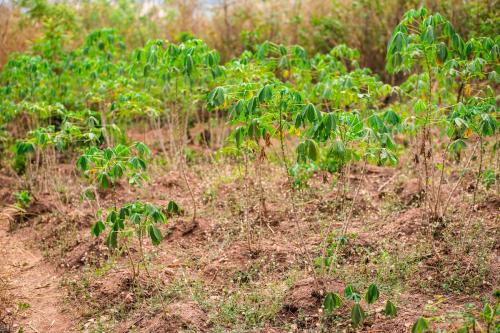This op-ed was originally published by The Hill.
Recent leadership changes in Africa signal that accountability and citizens’ demands for democracy are growing stronger there. Leadership transitions are becoming more frequent, and smoother—and, unlike in past decades, most are happening through constitutional means. Hiccups continue, though. Some elections are not free and fair, internal jockeying forces leaders out, and third terms appear to be on the rise.
Despite some rocky episodes, however, the overall trend reflects the people’s interests—that is, a rise of accountability—and is a welcome development.
When it comes to governance, Africans want democracy, term limits and accountability rather than efficiency, according to recent Afrobarometer surveys. In 2014-15, more than 77 percent said they support democracy; almost 75 percent wanted leaders to be limited to two terms; and more than 53 percent think it is important for citizens to hold governments accountable, even if that means slower decisions.
Since January 2016, Africa has experienced 18 leadership changes through elections and provisional changes. Half of 22 elections resulted in new leadership. As in the case of the Angolan elections and Zimbabwean leadership change, though, not all transitions have been smooth, nor free and fair. Indeed, leadership change is not necessarily a sign of the quality of a country’s democracy.
For the most part, though, recent elections and leadership transitions in Africa illustrate the rise of accountability on the continent. There are several forms of accountability:
Vertical accountability: Quality elections
Vertical accountability allows citizens to choose their leaders through free, fair, transparent, regular, and meaningful elections, which happens when there is an acceptable level of political rights and civil liberties. Vertical accountability is a matter of degree, since the quality of elections could be higher and certainly more meaningful in some countries than others (where elections could be flawed).
Since 2016, meaningful elections have led to changes in Benin, São Tomé and Príncipe, Ghana, Comoros, Lesotho, Liberia, and Sierra Leone.
Horizontal accountability: Checks and balances
Horizontal accountability is the ability of government institutions to check abuses by other branches of government, a system in which government institutions are independent and no agency or branch becomes too powerful compared to the others. In other words, checks and balances. In South Africa, for example, President Jacob Zuma—plagued by corruption scandals, legal battles and a deteriorating economy—resigned under pressure from colleagues in parliament.
Notably, horizontal accountability might not always end in leadership change, but it can preserve democracy and the rule of law. For example, Kenya’s Supreme Court annulled its August elections, given inconsistencies in the process, and ordered a re-run—a result respected, though unsteadily, by both the incumbent and opposition.
Personal accountability: Individual responsibility
Personal accountability is an individual’s responsibility and commitment to uphold high standards. Once a rarity, this phenomenon is on the rise. For example, this year President Ian Khama of Botswana stepped down after a decade in power to respect his country’s two-term limit. Similarly, in late 2016, President James Michel of the Seychelles resigned before the end of his third term, saying that it was time for the “new generation” to “take Seychelles to the next frontier of its development.”
Failures of accountability: Coups and more
Though Africa is trending toward successful, accountable, and constitutional leadership change, setbacks persist. Some leadership changes may take on the appearance of vertical, horizontal, and personal accountability. For example, many African countries still do not have free, fair, transparent, and meaningful elections. Too often, the levels of competition, participation, political rights, and civil liberties are quite low. In Angola, for example, President José Eduardo dos Santos stepped down after 38 years in power but only after arranging for a handpicked successor to win the election in 2017.
At the same time, though elections can be free and fair, a failure of personal accountability can impede democracy. For example, early last year President Yahya Abdul-Aziz Jammeh of the Gambia, who, after conceding electoral defeat after almost 21 years in power, had to be removed from office by the regional body ECOWAS because he changed his mind. Peer accountability made the difference.
Still, non-democratic tendencies persist. Late last year, President Robert Mugabe of Zimbabwe was ousted after 37 years of rule through what the Zimbabwean military calls “not a coup.” The event and circumstances are complex. Though his ouster was not constitutional, most citizens appeared to welcome the change. The direction of Zimbabwe’s democracy will be defined by this summer’s elections.
Finally, there is a growing trend among some leaders to pursue third terms; they press, through legal means or otherwise, to abolish or circumvent constitutional limits on terms or age. Many attempts over the past two years have succeeded—in Chad, the Democratic Republic of the Congo, Rwanda and Uganda, among other countries.
In many African countries, recent leadership changes have been accompanied by drama or scandal, but, on the whole, African citizens support democracy and want to choose their leaders through regular, open, and honest elections.




Commentary
Op-edAccountability and demand for democracy drive leadership changes in Africa
June 14, 2018